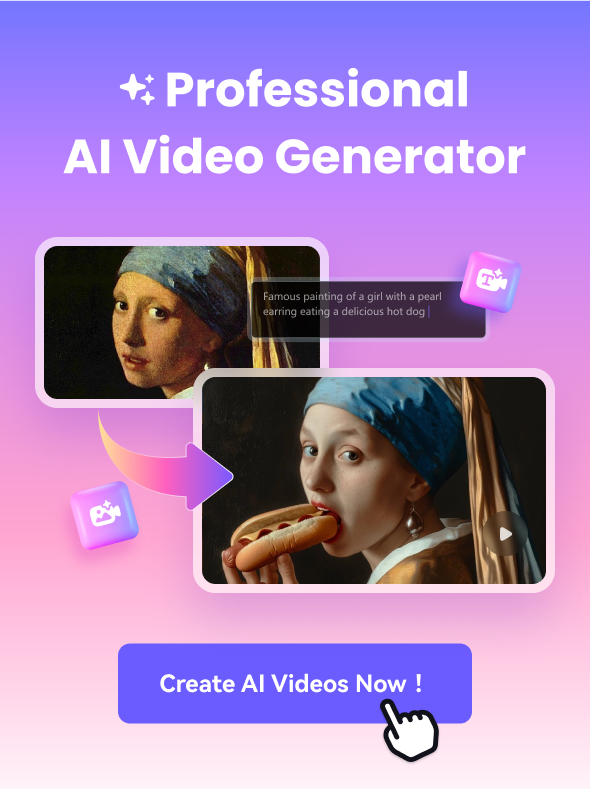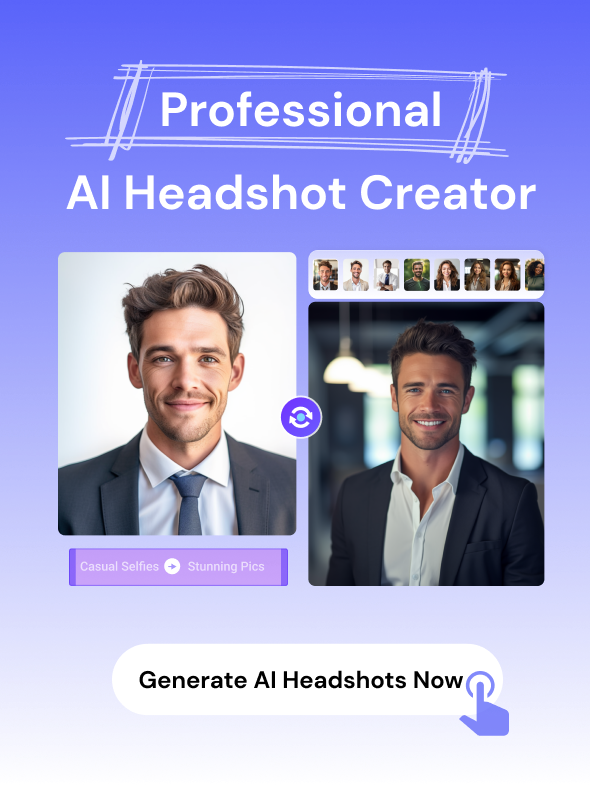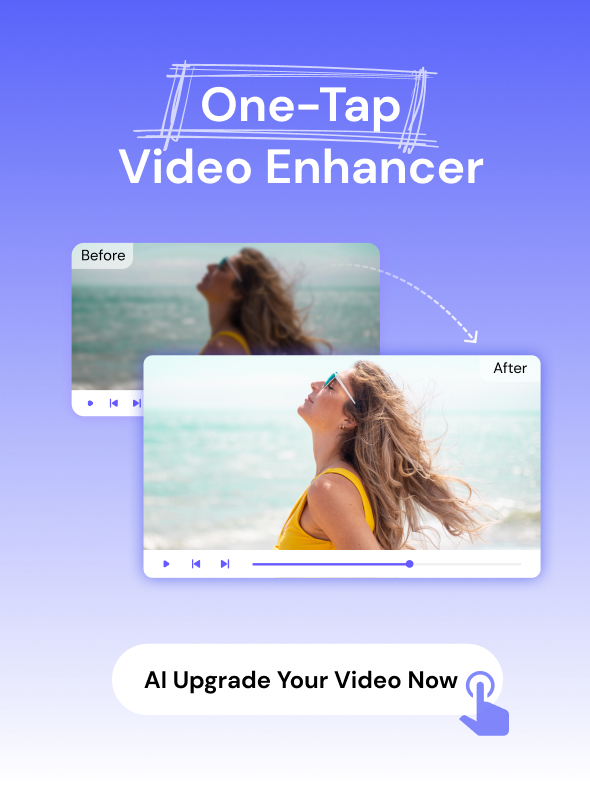On February 15, 2024, OpenAI made headlines again, following up on the success of ChatGPT with the launch of Sora, a groundbreaking technology designed to turn text prompts into videos up to a minute long.
The launch of Sora AI is poised to redefine the boundaries of what's possible in AI-driven content creation. It's like having a crystal ball showing us a world where making videos is not just faster and easier but also wide open with possibilities. Its impact is expected to span across various sectors, including entertainment, education, and marketing. Think about it – creating scenes from your favorite books, explaining complex stuff for school, or even creating engaging ads, all without breaking the bank or bending over backward technically.
This article aims to delve into the essence and potential of Open AI Sora, offering an in-depth analysis of how it might alter our world.
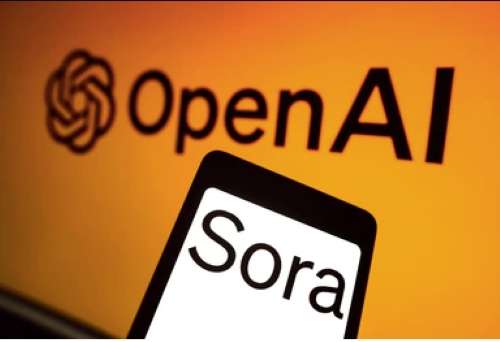
In this article
Part 1. What is OpenAI Sora
Sora, developed by OpenAI, is a text to video AI model. It can generate videos from mere text descriptions, extend existing videos forwards or backwards through time, and turns still images into moving scenes.
Rooted in the innovations of DALL-E 3, Sora operates as what is called a diffusion transformer. Think of it as an AI that starts with a sketch and then, piece by piece, cleans it up into a full-blown, detailed video. It's pretty nifty at handling complex scenes with multiple characters, capturing their movements and the intricacies of the environment with an impressive depth of detail.
In essence, Sora AI can depict intricate details of objects and settings, produce videos with multiple shots, and interpret nuanced language cues to maintain consistent characters and visual styles across the narrative. The characters brought to life by this text to video generator can convey deep emotions with remarkable realism, which demonstrates the model's nuanced understanding of both the prompts it receives and the physical world these prompts aim to depict.
Despite these impressive capabilities, Sora AI isn't without its limitations. These include challenges in simulating the physical principles underlying complex scenes, understanding causality, and accurately maintaining spatial details as specified in prompts. Misinterpretations such as confusing left and right directions or struggling to depict temporal events accurately are known areas for improvement. In response, OpenAI said it is committed to enhancing Sora's understanding and simulation of the physical world in motion.
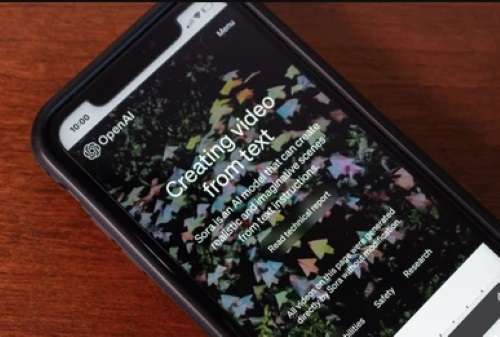
Part 2. Industries that Might be Impacted by Sora
The introduction of the AI Sora model has the potential to disrupt various industries - like movie and gaming- by transforming the way content is created, distributed, and consumed.
For example, Sora's capacity to generate high-quality video content from textual descriptions could significantly disrupt the traditional movie production pipeline. This technology streamlines the process of visualizing scripts, enabling filmmakers to experiment with scenes and settings at a fraction of the current cost and time. However, this convenience comes with the potential displacement of jobs. Roles traditionally centered around set design, costume, and even certain aspects of acting could see a shift towards more technologically integrated positions.
Additionally, the ease of creating realistic scenes and characters could democratize movie production. This will allow independent filmmakers to compete with large studios, potentially leading to a more diverse range of stories and visual content.
Sora’s efficiency has even led industry giants like Tyler Perry to reconsider expansion plans, highlighting its potential to disrupt economic and job landscapes in the film sector.
While Sora’s capabilities are impressive, many in the movie industry recognize that AI tools like Sora can't fully supplant the nuanced art of storytelling or the depth of a good script.
Furthermore, the Sora text to video AI tool could democratize game development, allowing smaller teams with limited budgets to produce high-quality content. This could lead to a surge in creativity and diversity in games available on the market.
However, there are potential downsides. The ease of creating game assets with Sora online tool might lead to a flooded market, making it harder for quality games to stand out. Additionally, the model could potentially displace jobs in game art and design, as AI begins to automate tasks traditionally performed by humans.
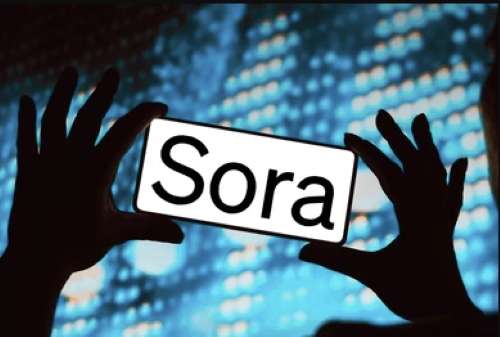
Part 3. What Industries will Benefit from Sora
Sora AI, with its advanced AI-powered video creation capabilities, is set to revolutionize a wide range of industries, including the following:
1. Social Media
This is where Sora really gets to shine. Imagine content creators and brands being able to craft hyper-personalized videos for their followers, on-the-fly. It's about taking engagement to the next level. Instead of generic posts that aim to catch as broad an audience as possible, Sora AI enables the creation of content that feels like it's speaking directly to you, the viewer.
2. Education
Imagine a world where learning materials are not just one-size-fits-all. Sora text to video AI tool can generate personalized videos that make learning not just effective, but super engaging. Every student gets content that speaks directly to them.
3. HR, Training, and Developmen
HR professionals can use Sora text to video generator to create training videos tailored to each employee. It's like having a personal coach for everyone, making the onboarding process a breeze and professional development way more impactful.
4. Marketing and Advertising
Marketers and advertisers can leverage Sora text to video AI model to produce hyper-personalized video content with compelling narratives that resonate with their target audience on a deeper level, thereby driving engagement and sales.
5. Event Planning and Hospitality
Event planners and hospitality businesses can use Sora AI to create engaging promotional content that's like a personal invitation to their event or venue. It's about giving people a sneak peek that's too tempting to resist.
6. Art and Design
Artists and designers, get ready to push boundaries. With Sora, the sky's the limit for creating digital art and installations that can change with the viewer. This opens up novel avenues for expression and exhibition in the digital age.
7. Consulting
Consultants can transform complex data into engaging and understandable video presentations with Sora AI text to video tool. This capability makes it easier to convey strategic insights and recommendations to clients, elevating the consultancy experience.
8. Healthcare
Healthcare professionals can use Sora AI to make patient education a lot less generic and a lot more personal. Imagine videos explaining your health in a way that feels like it's just for you. That's a game-changer for patient care.
9. Architecture and Real Estate
Sora can create stunning virtual tours and 3D models, making it easier to visualize and sell properties and projects. It's like being there without having to be there, which is pretty awesome for clients and architects alike.
10. Travel and Tourism
The travel and tourism industry can use Sora to create personalized travel guides and promotional videos. It's about giving potential tourists a taste of their dream vacation, tailored just for them. Makes packing your bags a no-brainer.
11. Nonprofit and Advocacy
For the people looking to make the world a better place, Sora AI text to video helps tell their story in a way that's hard to ignore. Powerful, personalized videos can really amp up awareness and support for their causes.
12. Manufacturing
In manufacturing, Sora's ability to prototype products through 3D videos accelerates the design and iteration process. This innovative approach can significantly reduce development time and costs, facilitating faster market entry for new products.
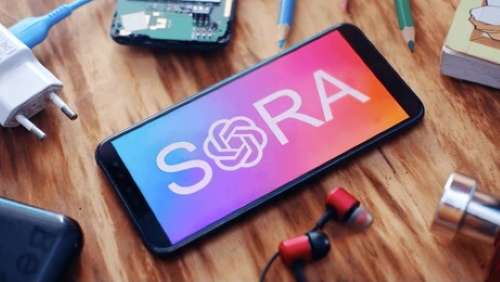
Part 4. How to Grab a Chance in the Rise of Sora?
Whether you're a content creator, an entrepreneur, a marketer, or an educator, understanding how to leverage Sora can set you apart and propel your projects to new heights. Here's how you can grab a chance in the rise of this text to video generator AI model:
1. Stay Informed and Educated
First things first, immerse yourself in everything Sora AI. Follow the latest developments, tutorials, and case studies. OpenAI and other tech communities are great resources for staying up-to-date. The more you know, the better positioned you'll be to use Sora text to video generator AI mdel effectively.
2. Experiment Early and Often
Dive into Sora's capabilities by experimenting with its features. Try different inputs, play with scenarios, and explore its limits. Early experimentation will not only give you a feel for the tool's potential but also spark creative ideas on how it can be applied to your field.
3. Identify Niche Opportunities
Look for gaps in your industry that Sora text to video generator AI model could fill. This might be creating personalized learning experiences in education, revolutionizing prototyping in manufacturing, or offering immersive virtual tours in real estate. Find a niche where Sora's capabilities align with market needs.
4. Develop Sora-Centric Services
Consider building services around Sora's capabilities. For creatives and agencies, this could mean offering Sora-powered video production. For educators and trainers, developing Sora-enhanced curriculum design could be a game-changer. Think about how your expertise can complement Sora's technology.
5. Educate Others
As you gain proficiency, share your knowledge. Conduct workshops, write articles, or create tutorial videos. Positioning yourself as a Sora expert can open doors to consulting opportunities, speaking engagements, and partnerships.
6. Leverage for Marketing and Engagement
Use Sora to create engaging content that stands out. Whether it's for social media, advertising, or customer education, videos created with Sora can elevate your brand's storytelling and connect with your audience on a deeper level.
7. Collaborate and Network
Join communities of other AI Sora users and enthusiasts. Networking can lead to collaborative projects, beta testing opportunities, and insights into how others are using Sora creatively and effectively.
8. Be Mindful of Ethics and Copyright
As you explore Sora's potential, be ethical. Respect copyright laws, and use the tool responsibly. Being a pioneer of Sora technology means setting a standard for its use, including navigating the complex terrain of AI-generated content with integrity.
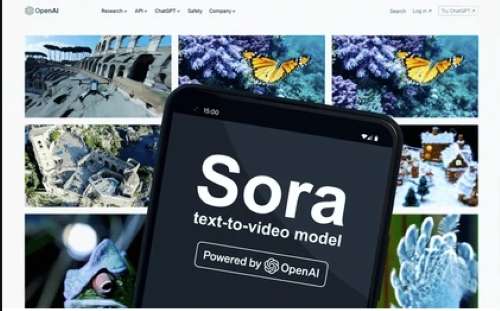
Part 5. Ethical and Legal Issues that Need to be Considered
Here's a concise overview of key ethical and legal considerations when using Sora AI:
1. Copyright and Intellectual Property
Ensure the text inputs and any additional content used with Sora AI do not infringe upon copyrighted materials unless you have permission or they fall under fair use.
Understand the legal rights over the videos Sora generates, especially if they incorporate elements that could be protected under copyright laws.
2. Consent and Privacy
Be transparent about the data collected for creating videos with Sora and obtain consent where necessary, especially if personal or sensitive information is involved. Additionally, using Sora to depict real individuals could raise privacy issues or misrepresentation concerns. Ensure you have consent from the people who might be recognizable in generated content.
3. Accuracy and Misinformation
Verify the accuracy of the information presented in Sora AI video, especially in critical fields like education, healthcare, and news, to prevent the spread of misinformation.
Also, be cautious of creating or spreading deepfakes that could harm individuals' reputations, contribute to false narratives, or undermine public trust.
4. Bias and Fairness
Acknowledge that AI systems, including Sora AI, can perpetuate or amplify biases present in their training data. Strive to use Sora in ways that promote fairness and inclusivity. Ensure that the content it generated reflects diversity and does not reinforce stereotypes or exclude certain groups.
5. Regulatory Compliance
Stay informed about and comply with local and international laws regulating AI technologies, data protection (such as GDPR in Europe), and digital content creation.
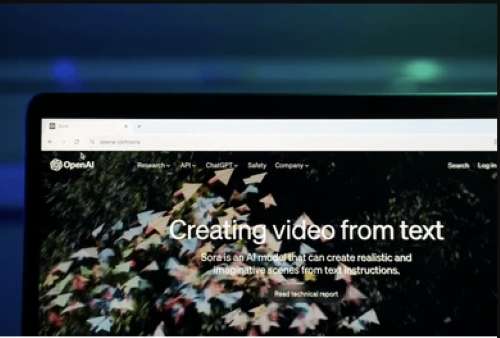
Conclusion
OpenAI's Sora stands as a sophisticated AI tool with the potential to revolutionize many industries. This innovation promises to democratize video production, making it more accessible and cost-effective for creators across sectors like education, healthcare, entertainment, marketing, and beyond. Sora's ability to generate personalized, adaptive content could enhance learning experiences, streamline training and development, revolutionize marketing strategies, and even transform the way stories are told in the movie and gaming industries.
However, the rise of Sora also brings to light significant ethical and legal considerations, including copyright issues, consent for using likenesses, the risk of misinformation, biases in AI-generated content, etc. As the technology progresses, addressing these challenges will be crucial in ensuring that Sora's impact is not only innovative but also responsible and inclusive.

